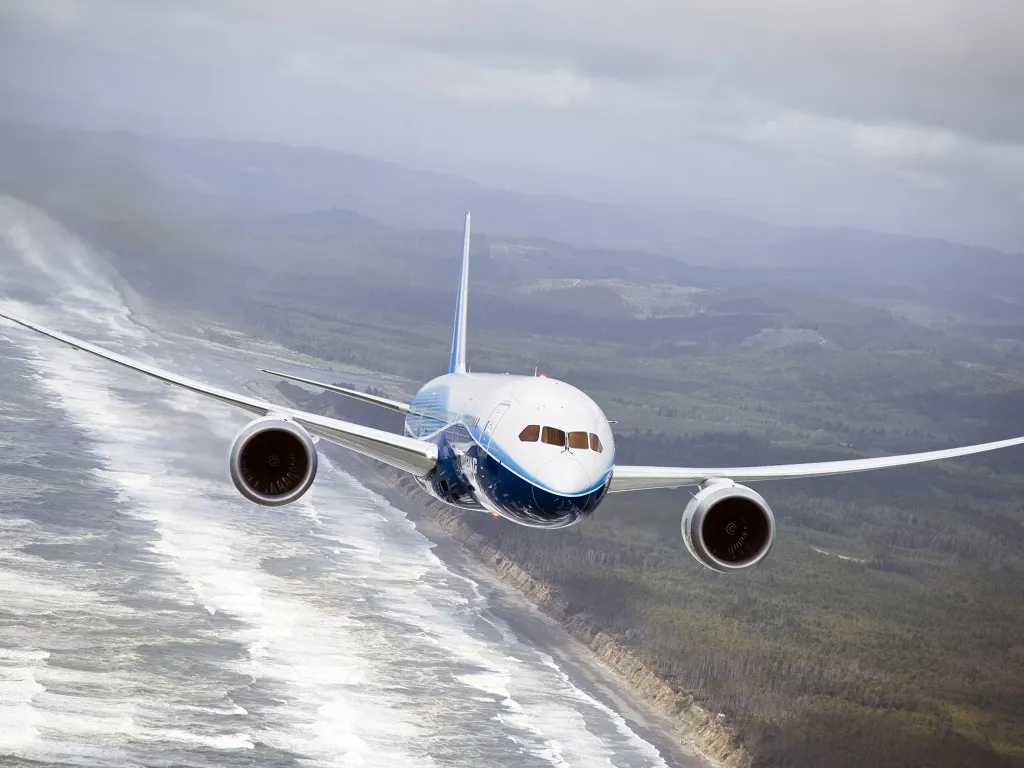
Boeing Reports Some 787 Inspections Not Completed
May 06, 2024

Boeing has announced that some inspections of its 787 Dreamliner aircraft have not been completed, raising concerns about the safety and compliance of the fleet. The company indicated that a combination of factors, including supply chain challenges and regulatory complexities, has contributed to the delays in finalizing these crucial inspections. As a result, Boeing is working closely with regulatory authorities to address the situation and ensure that all necessary safety checks are conducted. This development may impact delivery schedules and could lead to increased scrutiny from both regulators and stakeholders in the aviation industry.
The recent announcement from Boeing regarding the "787 inspections" has raised concerns among stakeholders in the aviation industry. The company disclosed that some of the critical inspections for the "Boeing 787 Dreamliner" have not been completed, which may have implications for safety and operational efficiency. As the situation unfolds, it’s essential to understand the implications of these unfinished inspections and what they mean for airlines and passengers alike.
Understanding the 787 Inspection Process
The "Boeing 787" undergoes a rigorous inspection process to ensure its safety and reliability. These inspections include checks on structural integrity, systems functionality, and compliance with regulatory requirements. The inspections are vital for maintaining the aircraft's airworthiness and ensuring passenger safety. When these inspections are not completed, it raises red flags about the aircraft’s operational readiness.
The Impact of Incomplete Inspections
Incomplete inspections can have several consequences:
- Safety Risks: The primary concern with incomplete inspections is passenger safety. Airlines rely on the thoroughness of these checks to ensure that every aircraft is safe for operations.
- Operational Delays: Airlines may face significant operational delays if they are unable to utilize their fleet due to unresolved inspection issues. This could lead to flight cancellations and frustrated passengers.
- Financial Implications: Airlines could incur additional costs due to the grounding of aircraft, leading to decreased revenue and potential penalties from regulatory bodies.
Current Status of Boeing 787 Inspections
Boeing has stated that they are working diligently to complete the outstanding inspections. However, the timeline for resolution remains uncertain. The company has emphasized its commitment to safety and ensuring that all aircraft meet the required standards before being cleared for flight. Below is a chart summarizing the current status of the inspections:
| Inspection Type | Status | Estimated Completion Date |
|---|---|---|
| Structural Integrity | Pending | Q1 2024 |
| Systems Functionality | In Progress | Q2 2024 |
| Regulatory Compliance | Pending | Q1 2024 |
Boeing's Response and Future Plans
In light of the recent developments, Boeing has reiterated its commitment to safety and quality. The company is implementing measures to expedite the inspection process while ensuring that all necessary checks are thoroughly conducted. Boeing has also been in contact with regulatory authorities to keep them informed and to ensure compliance with all regulations.
What This Means for Airlines
The implications of the inspection delays are significant for airlines operating the "Boeing 787". Airlines must adjust their operational strategies to accommodate potential aircraft groundings. This may involve:
- Adjusting Flight Schedules: Airlines may need to modify their flight schedules, which can lead to customer dissatisfaction.
- Increasing Fleet Utilization: Airlines may turn to other aircraft models to fill the gap left by grounded "787s", which could strain other parts of their fleet.
- Communicating with Passengers: Clear communication with passengers regarding potential delays or cancellations will be essential to maintain trust and customer satisfaction.
The Path Forward for Boeing
As Boeing works through the inspection challenges, the aviation community will be watching closely. The company has a history of overcoming obstacles and ensuring that its aircraft meet the highest safety standards. Moving forward, Boeing must focus on:
- Enhancing Inspection Processes: Streamlining inspection protocols to prevent future delays and ensuring timely completion of all checks.
- Strengthening Communication: Maintaining open lines of communication with airlines and regulatory bodies to build trust and transparency.
- Investing in Quality Assurance: Allocating resources to improve the quality assurance processes that underpin the safety of the "Boeing 787".
Conclusion
The recent report of incomplete "787 inspections" highlights the critical importance of safety in the aviation industry. As Boeing navigates this challenge, the focus must remain on ensuring that all inspections are completed and that the "Boeing 787 Dreamliner" continues to meet the high standards expected by airlines and passengers alike. The aviation industry thrives on trust, and it is crucial for Boeing to reaffirm its commitment to safety and quality as it moves forward.
Related Articles

Explore Thailand: The Best Islands to Visit for Paradise, Adventure, and Relaxation

The Ultimate Guide to the Best Islands in Thailand for Your Next Getaway

Do babies need passports? How to get a passport for a newborn

How to get a U.S. passport fast: here’s how to expedite the process

What is Mobile Passport Control: 5 reasons why you should use it

SENTRI vs. Global Entry: A detailed guide

Do you need a passport to go to the Bahamas? Let’s find out

Do you need a passport to go to Mexico? A detailed guide

Do you need a passport to go to Canada? We got the answer

Do You Need a Passport for a Cruise: An Essential Travel Guide

Booster Seat Requirements: All the Rules to Follow in Your Rental Car

What Are the World’s Most Powerful Passports, and How Does Yours Rank?

How to Take a Passport Photo at Home: A Helpful Guide

You've got to have heart! Southwest's new livery

Your opinion: Should water be free on low cost carriers?

Young women bolder than guys as solo travellers
